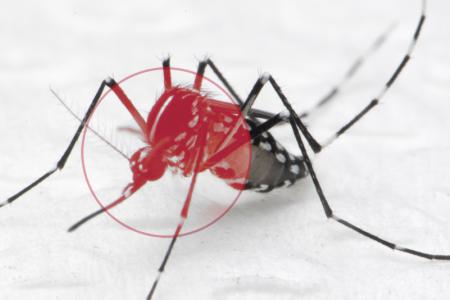NEA advises travellers to mozzie-proof homes as dengue cases soar
Residents planning to go overseas for the year-end holidays should make their homes mosquito-proof before travelling, said the National Environment Agency (NEA) amid a spike in the number of dengue cases here.
Its advisory on Wednesday came as the number of dengue cases so far this year has risen more than five times from the same period last year. From the beginning of this year until last Saturday, there were 14,658 dengue cases, about 51/2 times the figure last year.
There are 76 active dengue clusters, with the five largest in Choa Chu Kang Avenue 2, Elias Road in Pasir Ris, Jalan Bangau and Begonia Lane near Yio Chu Kang, and Jurong West Street 61.
Most mosquito breeding sites in these clusters are within residential premises.
NEA advises residents to cover floor traps and toilet bowls and seal overflow pipes of flushing cisterns before travelling overseas. They should add insecticide where mosquitoes can breed and stagnant water cannot be removed.
They should clear debris and blockages, place BTI insecticide in roof gutters and turn over water storage containers and wipe the rims dry. Residents can also ask someone to help check their homes for stagnant water if they are going away for a long period and leave their contact details with neighbours or the neighbourhood police post or centre so they can be reached easily.
NEA said there are multiple reasons for the high number of dengue cases in recent weeks, including the large population of Aedes mosquitoes, warmer temperature and low immunity in humans.
It said it has distributed Gravitrap surveillance data to town councils and other parties, such as members of the Inter-Agency Dengue Task Force, to help them target areas with a larger mosquito population and prioritise dengue prevention and control measures.
Gravitraps are small black cylinders that trap female Aedes aegypti mosquitoes looking for water to lay eggs in. NEA and the Inter-Agency Dengue Task Force have continued to inspect dengue cluster areas. Between January and September, in about 703,000 inspections islandwide, NEA uncovered about 11,700 mosquito breeding habitats.
About 6,300 enforcement actions were taken against owners of homes and buildings for mosquito breeding.
Get The New Paper on your phone with the free TNP app. Download from the Apple App Store or Google Play Store now


